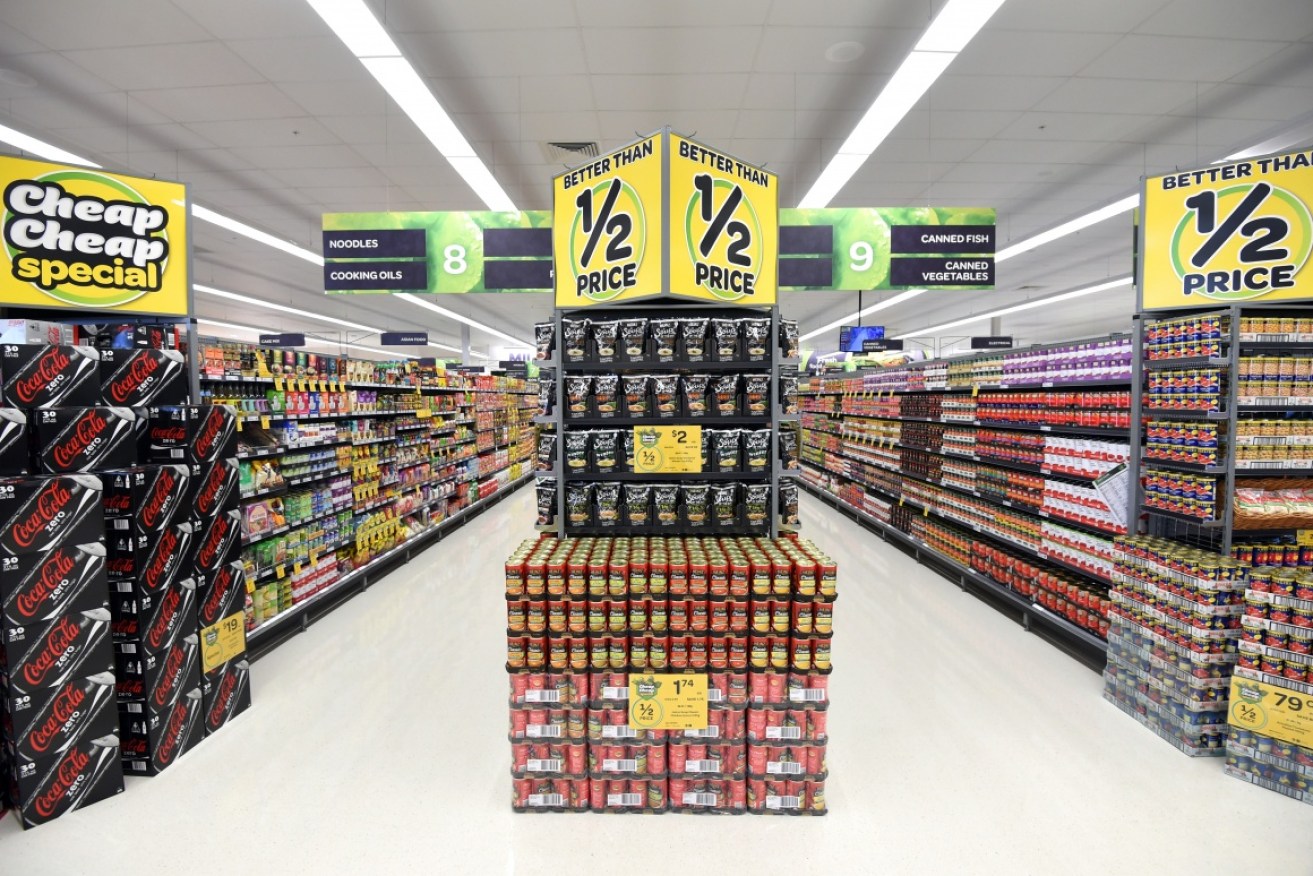The shadowy world of supermarket private labels


Do you want to know if what you're buying is actually healthy? Look for these numbers. Photo: AAP
Earlier this month Coles revealed it was planning to massively ramp up its range of own-brand products – raising the obvious but rarely-asked question, who exactly is making all this supermarket-branded stuff?
Coles managing director John Durkan said by 2023 the supermarket’s ‘private label’ range would account for 40 per cent of its total product range, up from 26 per cent today.
Aldi already has a majority of private-label products, and Woolworths is moving in the same direction.
That means, if the supermarkets are successful, Australians will increasingly be eating or otherwise using products that claim to be made by the supermarket.
So, does Coles really know how to make peanut butter? Is Woolworths a cheesemaker as well as a supermarket? Does Aldi have a tomato canning factory somewhere we don’t know about?
The answer to all this is an emphatic ‘no’. Supermarkets are retailers, not manufacturers.
In reality, private-label products are made by specialist food producers – that is, exactly the same companies that make the branded peanut butter, cheese and tinned tomatoes.
Beyond that, though, it’s pretty much impossible to find out the precise manufacturer for each product. The supermarkets are under no legal obligation to tell you who makes their home-brand products, and if you ask the supermarkets point blank: “Who makes this product?” they will simply refuse to tell you.
To prove this, The New Daily picked out six private-label products from each of these supermarkets’ websites on sale last week, and asked the supermarkets to reveal which companies manufactured each of them.
The responses were uniform: a flat-out refusal to give any information. Coles and Aldi ignored the question completely, responding instead with some irrelevant marketing spiel.
Woolworths was more direct, saying it would not reveal the identities of the manufacturers because the details of its contracts with these manufacturers were “commercial-in-confidence”.
But The New Daily spoke to a number of industry insiders – most of whom preferred to remain off the record – and they confirmed that it is likely that the Coles peanut butter, for example, is manufactured by exactly the same company that makes the branded peanut butter sitting on the shelf next to it for $2 more.
It could even be from the same batch.
How private-label contracts work
The story of how supermarkets negotiate private-label contracts with their producers is a fascinating one, as it demonstrates just how much power these oligopolistic retailers have over food production in Australia.
If Coles or Woolworths want to make, say, a low-cost cheese, they will have to contract a cheese manufacturer to produce it for them.
Joanne Bills, a food industry consultant and director of Fresh Agenda, said manufacturers make a much smaller profit margin from the private-label cheese than they would from their branded products. It is, in Ms Bills’ words, “a low-margin, high-volume proposition”.
However, these contracts are often huge, long-term contracts that will pretty much guarantee a producer a market for a certain period. And generally the contracts include clauses that give preferential treatment to the producer’s brand.
That means the branded product of the producer who makes the private-label product probably is sitting next to it on the shelf – though Ms Bills said that it would not necessarily be an identical product. “Normally there is some innovation in the branded product,” she said.
Because of the size of these valuable contracts, smaller producers generally don’t have the scale to compete.
“You have to be big and highly efficient to produce private label,” she said. “It also takes away the incentive to do anything innovative, because the product will be associated with the supermarket rather than the producer’s own brand.”
It’s this element that supermarkets really like, she said, because it gives the supermarket control and builds customer loyalty.
“The supplier making the private-label product could change from year to year, but you won’t know that. Your loyalty is to Coles or Woolworths, not whoever is making it behind the scenes,” she said.
“For shoppers, it means lower prices, but it also means less choice and a lot less innovation.”








